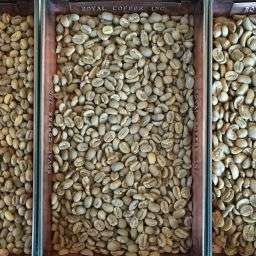
Turkish coffee is not just a drink; it’s an experience, a centuries-old tradition that has been passed down through generations. Originating in the 15th century in the Middle East, it has become a significant part of Turkish culture and social life. The unique preparation and serving method of Turkish coffee set it apart from other coffee types, making it a UNESCO Intangible Cultural Heritage of Turkey.
At the heart of Turkish coffee’s distinctive taste is its most crucial ingredient: the coffee beans. Selecting the right beans is paramount to achieving the rich, bold flavor and foam that Turkish coffee is renowned for. This blog post explores the best coffee beans for Turkish coffee, guiding you through the nuances that make a perfect cup.
The Basics of Turkish Coffee
What is Turkish Coffee?
Turkish coffee refers to a method of coffee preparation where very finely ground coffee beans are simmered in water (often with sugar) and served in a cup where the grounds are allowed to settle.
What distinguishes Turkish coffee is not the beans used but the grind’s fineness and the method of preparation. The result is a coffee that is much denser, with a velvety texture and a strong flavor that can be tailored to various sweetness levels.
How It Differs From Other Coffee Types
Unlike espresso or filtered coffee, Turkish coffee is brewed slowly over low heat, allowing full extraction of flavor from the beans. The coffee is not filtered; instead, it is served with the grounds in the cup, a unique aspect of its presentation. This method allows for a range of flavors and strengths, from mild to very strong, depending on the coffee-to-water ratio and the brewing time.
The Role of Coffee Beans in Flavor
The choice of coffee beans is critical in Turkish coffee for several reasons. First, the grind size needs to be extra fine, finer than that of espresso. This requires beans that can maintain their flavor integrity when ground to a powder-like consistency.
Second, the beans’ origin and roast profile significantly influence the coffee’s final taste. Traditional Turkish coffee often uses a medium roast to balance the coffee’s inherent flavors with the roasting process’s caramelization, resulting in a rich and complex cup.
Selecting the Best Coffee Beans for Turkish Coffee
Choosing the best coffee beans for Turkish coffee involves considering several factors, including freshness, roast level, and grind size. Here’s how to select the ideal beans:
Freshness
Freshness is paramount when it comes to coffee beans. Opt for beans that have been roasted within the last two weeks to ensure the fullest flavor. Fresh beans will produce a more vibrant and aromatic Turkish coffee.
Roast Level
The roast level significantly affects the coffee’s flavor. For Turkish coffee, a medium to dark roast is preferred. These roasts provide a good balance between the beans’ inherent flavors and the caramelization from roasting, offering a rich, complex cup without overpowering bitterness.
Grind Size
The grind size for Turkish coffee is crucial; it needs to be extra fine, finer than what is used for espresso. Not all beans grind well to this size without losing flavor. Arabica beans, with their softer structure, are often more suited to achieving the fine powder needed for Turkish coffee without sacrificing taste.
Grinding and Preparation Tips
Grinding coffee beans to the fine consistency required for Turkish coffee is a key step in the preparation process. Use a burr grinder for a consistent, fine grind, and aim for a powder-like texture that clumps slightly when pinched. This fine grind allows for maximum flavor extraction during the brewing process.
When brewing, use cold water and heat it gradually with the coffee, stirring gently until it begins to froth. Avoid boiling, to preserve the coffee’s delicate flavors. For an authentic experience, serve the coffee with the grounds settling at the bottom of the cup.
Where to Buy the Best Coffee Beans for Turkish Coffee
Finding the best coffee beans for Turkish coffee can be a journey of its own. The key is to look for quality and freshness, which can often be found in places that roast their beans on-site or source them directly from reputable growers. Here are some suggestions for finding quality beans:
Local Roasters
Local coffee roasters are a great place to start. They often have a selection of freshly roasted beans and can provide valuable advice on which beans are best for Turkish coffee. Buying from local roasters also means the beans haven’t spent weeks in transit, ensuring they’re as fresh as possible.
Online Specialty Shops
For those who don’t have access to local roasters, online specialty coffee shops are an excellent alternative. These shops often have a wide selection of beans from around the world, including single-origin beans that can provide a unique taste experience for Turkish coffee. Look for online retailers that roast to order or provide clear roast dates to ensure freshness.
Specialty Coffee Markets
Markets that specialize in gourmet or international foods sometimes carry a selection of high-quality coffee beans suitable for Turkish coffee. These can be a good option for discovering beans from specific regions known for their coffee production.
Conclusion
Turkish coffee’s rich tradition invites experimentation and personalization, making it a uniquely rewarding coffee experience. By following the guidance provided in this blog post, you’re well on your way to discovering the best coffee beans for your Turkish coffee journey. Enjoy the ritual, savor the flavors, and cherish the moments of joy it brings to your life.









